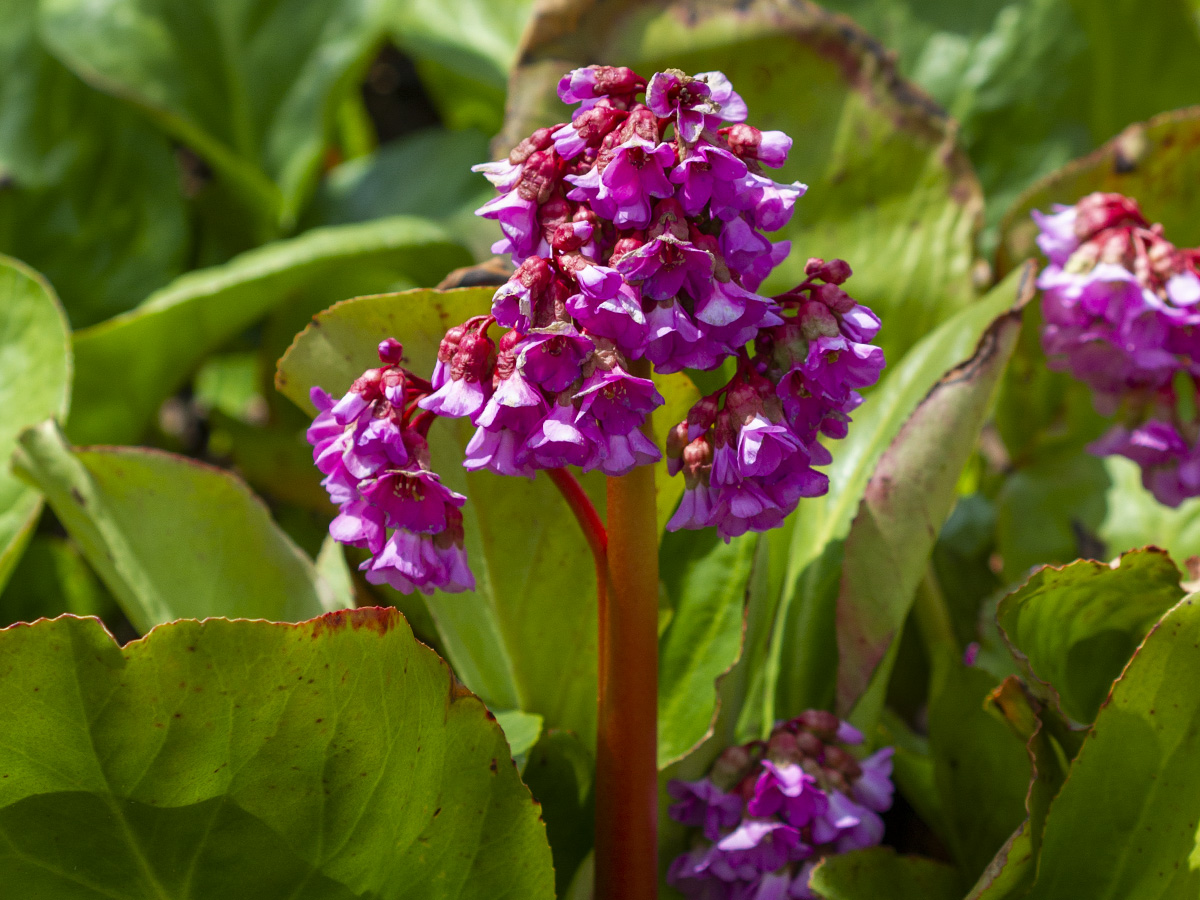Tried and true plants for a Calgary garden

Photo by Deborah Maier
Calgary is in a beautiful spot — mountains rising in the west, prairies trailing eastward. The city is perched between the two notable landscapes in an area that is semi-arid and experiences chinooks. The air is dry. Even in the summer, using lotion on our hands and face is a common practice. If anyone has flown to Winnipeg or Toronto in the summer, when you leave the plane after arriving at your destination, the air feels heavy and cloying, as it contains so much moisture. Calgary is one of the driest cities in the country. Our summer temperatures are also relatively cool. In 2019, according to Environment Canada, Calgary’s average high for July was 22.3 °C and the low was 10.5 °C. This makes even a July morning feel light and fresh.
Aside from our air feeling fresh and light, we frequently wake to bright, sunny, fog-free mornings. The grass and plants are dew-free and we can head straight into the garden—there is no need to wait for the dew to dry from the leaves of the plants in fear of contributing to fungal diseases, as there is in more humid places.
When creating and enhancing our gardens, these environmental conditions should influence the plants we choose. In fact, we really should be selecting plants that are drought tolerant or waterwise. Many of these plants are tried and true varieties that can frequently be found in garden centres, even during the summer months.
When we choose water-wise, low-maintenance plants, we are not choosing plants that we can totally ignore, but plants that require less of our time and effort. Xeriscaping means a landscape that reduces or eliminates the need for supplemental watering; it is not “zero”-scaping. The garden needs to be planned to make use of the rainwater that falls, plants need to be monitored, and weeds, while typically fewer, still need to be removed. As time moves on, we may prefer to labour in our gardens less and enjoy them more in a less active manner. So which plants should we be considering? Here’s a few suggestions:
Chives (Allium schoenoprasum) They are typically not bothered by pests, start blooming by June and continue through the summer. They are often recommended as a companion plant in the garden as they ward off other plant pests. They self-seed prolifically, so be sure to deadhead if you want them contained. A nice way to deadhead is to pick the flowers just after they’ve opened and while they are still supple and add them to a salad—beautiful and edible.
Elephant Ears (Bergenia cordifolia) It grows in a wide range of light and soil conditions, so it can be planted almost anywhere in the yard. It blooms in the spring, though it is mostly grown for its thick, lush leaves. In the fall it turns a deep purplish-red and will remain in that state until spring returns.
Carpathian Bellflowers (Campanula carpatica) The common variety “Blue Clips” will grow in full sun to part shade in a well-drained, average soil. It forms nice mounds of delicate, large-toothed foliage with blue, bell-shaped flowers. The leaves are heart-shaped and delicate, and readily differentiated from the invasive C. Rapunculoides.
Hardy (Cranesbill) Geraniums – Geranium spp. There are many varieties to choose from. Bigroot geranium (Geranium macrorrhizum) has large, scented foliage and is dry shade tolerant. It will grow on the north side of a raised deck.
Daylilies – Hemerocallis hybrids Again there are many to choose from, but an old favourite is the Stella d’Oro daylily. It was bred in 1975 and has won awards for its features, such as its all-season-long, fragrant, rich yellow flowers.
Many of these plants are found in the yards of beginner gardeners. As these gardeners become experienced, and want more of a challenge, they are replaced by plants that require more attention. More options for Calgary-suited perennials can be found in the YardSmart Perennials brochure posted on calgary.ca.
The Perennial Plant item under the Resources menu on the Calgary Horticultural Society website opens a list of the Perennial Plant of the Year (PPOY) winners. One of the requirements of a PPOY is its ability to thrive in Calgary gardens. Both are great places to find plants that offer an opportunity for us to put less work into and get more joy out of our gardens.
It’s time to re-embrace these terrific Calgary “tried and true” plants. Let’s become new gardeners again and enjoy the plants that readily thrive in the environment of a Calgary garden — a place perched between the Rockies and plains of the prairies.
